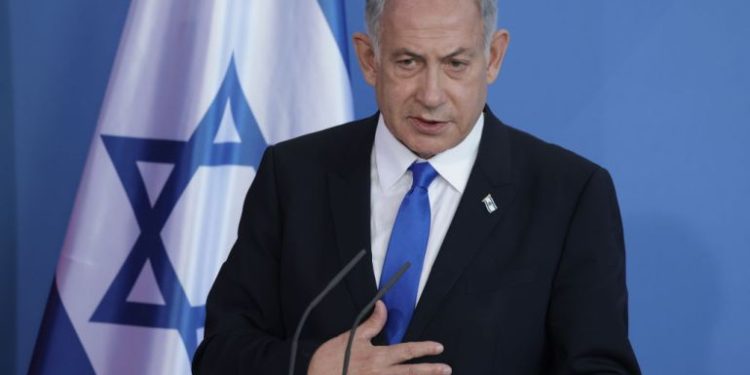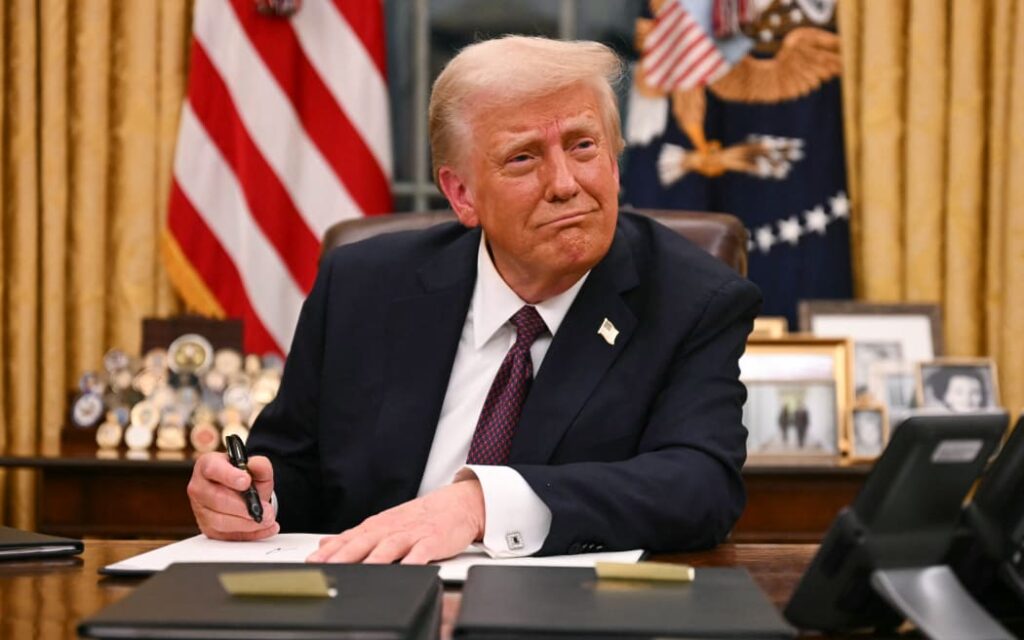Iran and the United States (US) are in Rome holding a fifth round of nuclear talks on disagreement over uranium enrichment by Iran and threats of Israeli military strikes against Iranian installations.
The main obstacle to any US-Iran deal remains the wide gap on Iran’s nuclear enrichment.
On Thursday, Iranian foreign minister Abbas Araghchi said in a televised interview on state TV that if the United States aims to end uranium enrichment then there will be no nuclear deal.
“They have said [US officials]… that they do not believe in enrichment in Iran… and it has to stop completely, if this is their goal there will be no deal”, Araghchi said.
The Iranian foreign minister said the idea of a uranium enrichment consortium with the participation of other nations is not bad, but will not replace enrichment on Iranian soil.
On Tuesday, Iranian Supreme Leader Ayatollah Ali Khamenei said US demands that Tehran stop refining uranium were “excessive and outrageous,” and he voiced doubt over whether talks on a new nuclear deal would succeed.
Iran has the capability to build a nuclear weapon, but does not have the will to do so, Araghchi said.
US envoy Steve Witkoff said Washington “could not authorise even one percent” enrichment — a position Tehran called a red line, citing its rights under the Non-Proliferation Treaty.

Pix Netanyahu
Since returning to office, Trump has revived his “maximum pressure” campaign on Iran, backing talks but warning of military action if diplomacy fails.
Iran wants a new deal that would ease sanctions which have battered its economy.
The last round of talks, in the Omani capital Muscat, ended with a public spat over enrichment.
Friday’s talks in the Italian capital come ahead of a June meeting of the UN nuclear watchdog, the Vienna-based International Atomic Energy Agency (IAEA), and the October expiry of the 2015 accor
The deal, known as the Joint Comprehensive Plan of Action, aimed to stop Iran from developing a nuclear bomb — a goal Western countries accused it of pursuing, though Tehran denies it.
In return for curbs on its nuclear programme, Iran had received relief from international sanctions. But the accord was torpedoed in 2018 when Trump unilaterally withdrew the United States.
Iran responded by ramping up its nuclear activities.
It is now enriching uranium to 60 percent — far above the deal’s 3.67 percent cap but below the 90 percent needed for weapons-grade material.
Experts in Tehran reportedly, said Iran was unlikely to back down.
“It’s quite simple; if the US expects Iran to halt nuclear enrichment, then there can’t be a deal,” said Mohammad Marandi, a political scientist who was once an adviser on the nuclear issue.
The Atomic Energy Organisation of Iran says the country’s nuclear industry employs 17,000 people, similar to other countries where uranium is enriched for civilian use.
“The Netherlands, Belgium, South Korea, Brazil, and Japan enrich (uranium) without possessing nuclear weapons,” its spokesman Behrouz Kamalvandi said.
The talks will take place also under the shadow of Israeli threats to attack Iran’s nuclear installations.
Following a CNN report that Israel might be preparing strikes on Iran, Araghchi said on Thursday, the United States would bear legal responsibility in the event of an Israeli attack on Iranian nuclear sites.
Citing intelligence sources, CNN said on Tuesday it was not clear whether Israel had made a final decision on military action and that US officials disagreed about whether the Israelis would ultimately decide to attack.
“Iran strongly warns against any adventurism by the Zionist regime of Israel and will decisively respond to any threat or unlawful act by this regime,” Araghchi said in a letter addressed to United Nations Secretary-General Antonio Guterres.

Pix: Trump
Pix::Araghchi said Iran would view Washington as a “participant” in any such attack, and Tehran would 6 to adopt “special measures” to protect its nuclear sites and material : threats continued, and the International Atomic Energy Agency watchdog would be subsequently informed of such steps.
Although Araghchi did not specify what measures were being considered, an adviser to Iran’s Supreme Leader said in April that Tehran could suspend cooperation with the IAEA or transfer enriched material to safe and undisclosed locations.
In a separate statement released on Thursday, Iran’s elite Revolutionary Guards warned Israel would receive a “devastating and decisive response” if it attacks Iran.
“They are trying to frighten us with war but are miscalculating as they are unaware of the powerful popular and military support the Islamic Republic can muster in war conditions,” Guards spokesperson Alimohammad Naini said.
A collapse of US-Iran negotiations or a new nuclear deal that does not alleviate Israeli concerns about Iran developing nuclear weapons through enrichment could prompt Israeli strikes on its regional arch-foe, diplomats say.
Trump spoke on Thursday about his diplomacy on Iran with Israeli Prime Minister Binyamin Netanyahu, in a telephone call largely focused on an attack in Washington that killed two Israeli embassy employees.
Trump told Netanyahu that the Iran talks are “moving along in the right direction”, White House Press Secretary Karoline Leavitt told reporters.
State Department spokeswoman Tammy Bruce said the United States would not be holding talks “if we didn’t think that there was potential”.
“I would say that clearly we believe that we are going to succeed,” Bruce said.